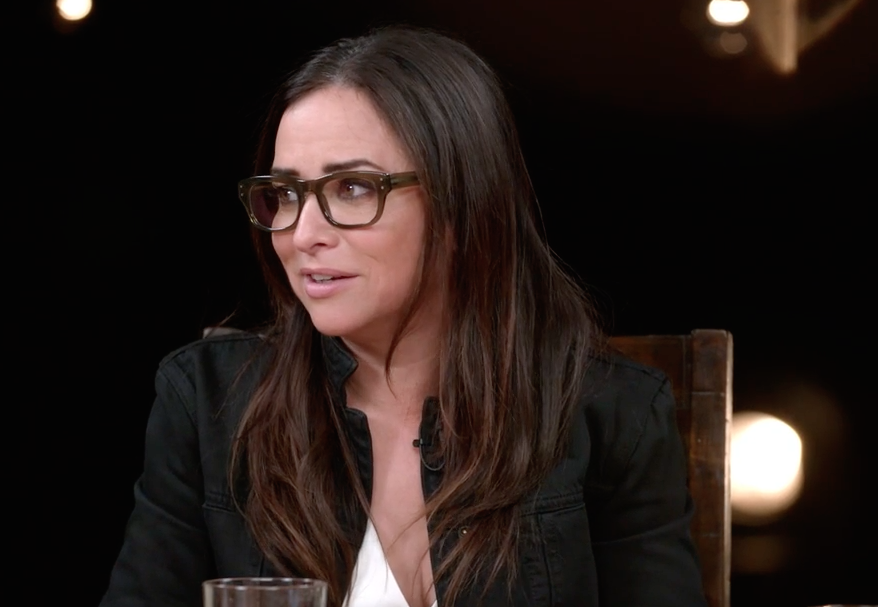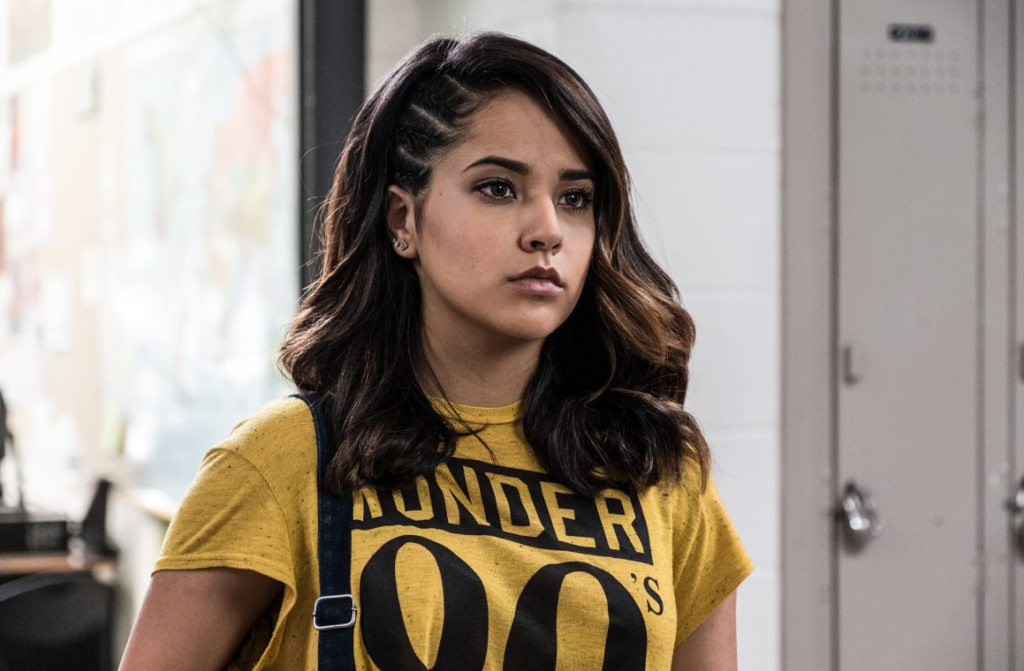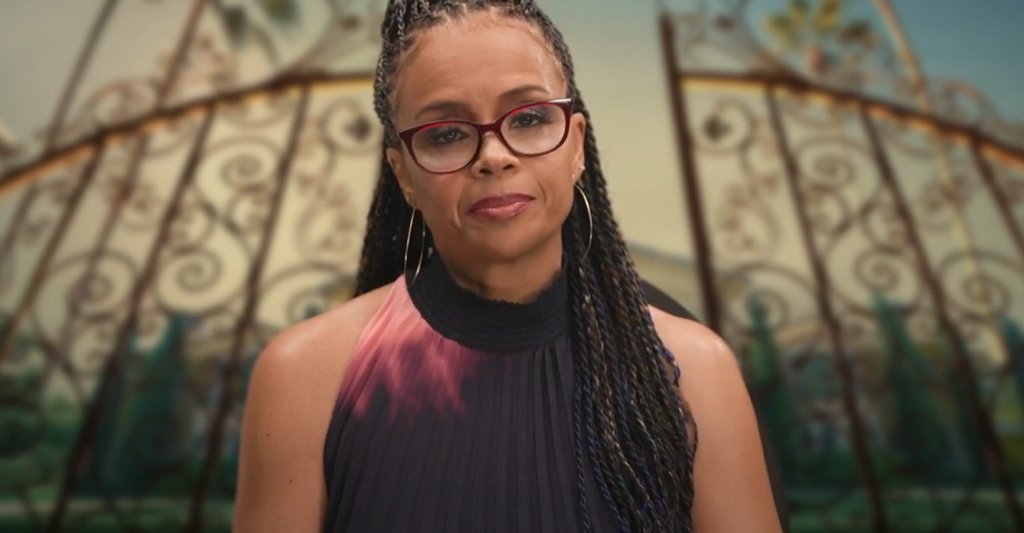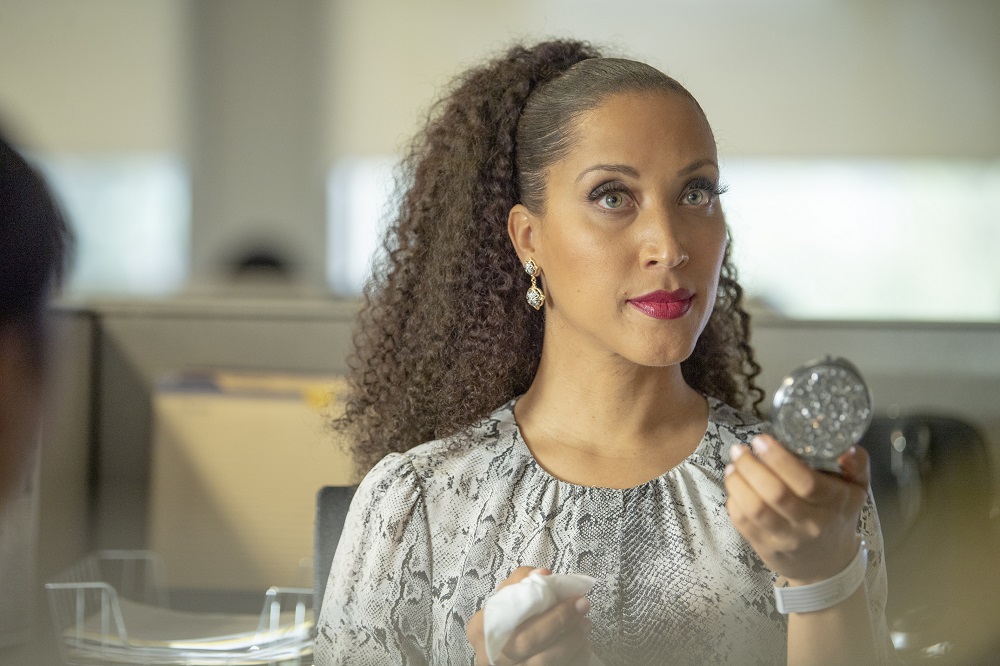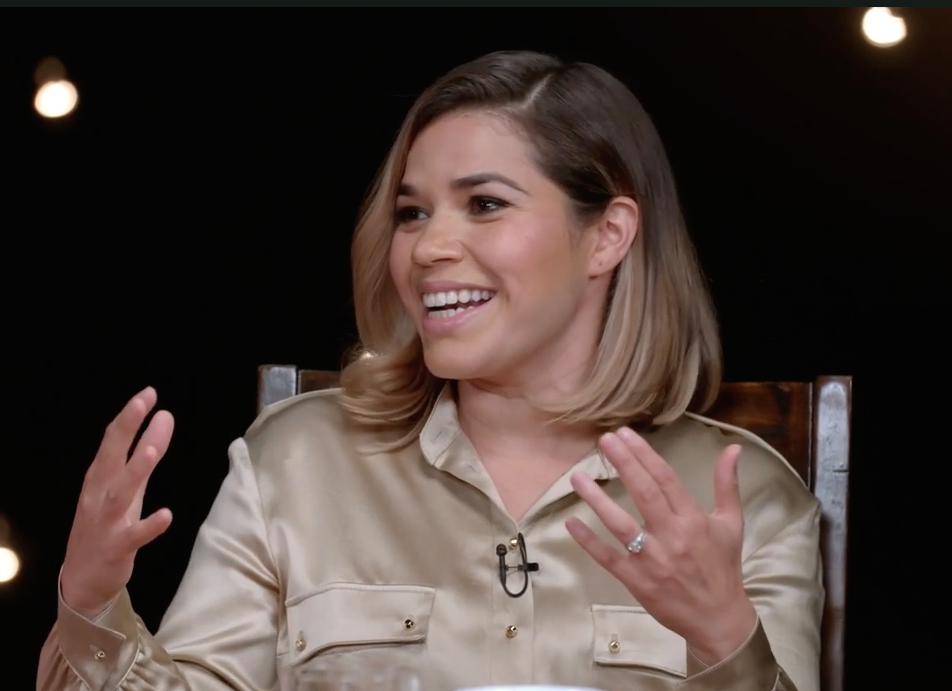
“I think we should be equal opportunity P and D,” Emmy Rossum stressed during The Hollywood Reporter’s Comedy Actress Roundtable. Rossum (“Shameless”) joined America Ferrera (“Superstore”), Minnie Driver (“Speechless”), Pamela Adlon (“Better Things”), Kathryn Hahn (“I Love Dick”), and Issa Rae (“Insecure”) to talk about their experiences in show business. The women discussed the push for more male nudity onscreen, portraying unsympathetic characters, and the constant fight to close the gender pay gap in Hollywood.
Here are some highlights from the conversation:
How “unlikable” is a gendered term:
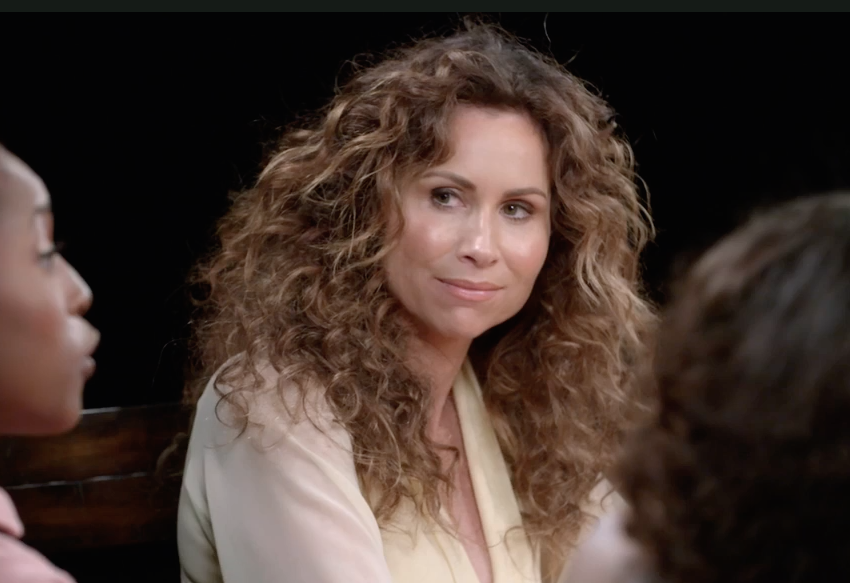
Driver: “I actually have a real problem with women being called unlikable because you never hear that about a man. They’re called antiheroes and they’re funny and they’re strong and they’re interesting.” She described her character on “Speechless,” Maya, as “not likable across the board, and most women or most people aren’t, but she has a very heightened set of circumstances. If you’re handed a baby who a doctor tells you is never going to lead a typical life [with cerebral palsy] — they probably won’t walk, they probably won’t talk — the small stuff doesn’t really apply anymore. You say whatever you think. So I feel like she has a different set of tenets by which she lives, and some of them are really not likable, but she’s human in that way.”
Ferrera: “And there’s liberation in it, too. My character on ‘Superstore’ is so different from the one I played for four years on ‘Ugly Betty.’ Betty was this picture of optimism … Amy on ‘Superstore’ is so different. She’s coming from such a different place: She has a job that is just a job, and she doesn’t seek her validation in it, and she doesn’t need people to like her. Playing that role as I am growing up as a woman, there’s liberation in feeling like I don’t have to make everyone like me. It’s OK if people don’t like me. I can just be a person in the world, and it’s not the end of the world if somebody doesn’t approve.”
Driver: “It’s very antithetical to being an actress because we are groomed to be people pleasers…”
On the opportunities — or lack thereof — for women of color:
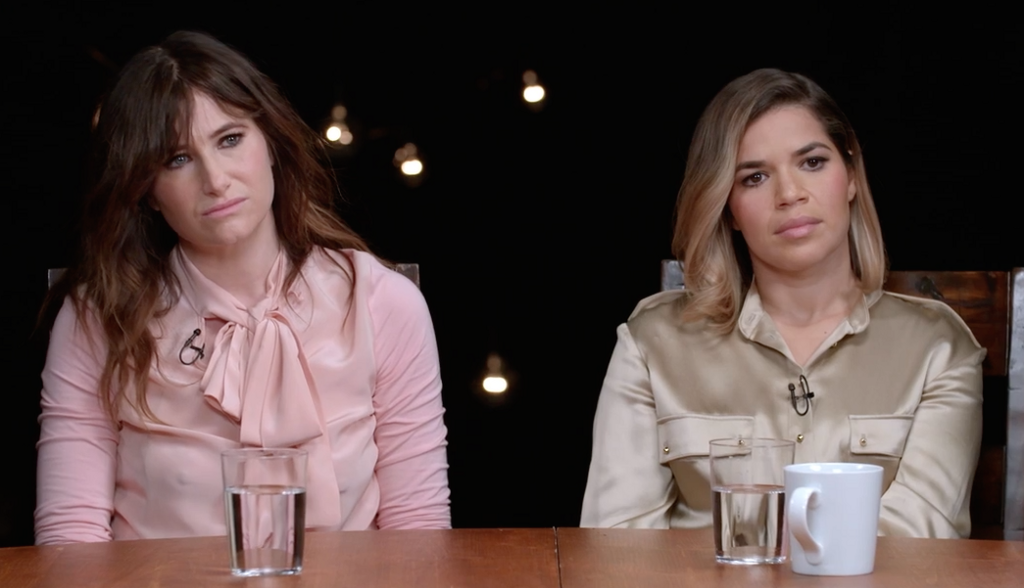
Ferrera: “I’ve established myself to a certain degree, so I’m so lucky that I now get considered outside of the box of Latina, but I don’t think that’s true for everyone. In the way that, like, when Halle Berry gets considered for roles that are not written black, that doesn’t apply to everyone.”
“There has been progress, but there is so much more to do. There’s so much nuance in the way that we talk about the roles that women are now finally getting to inhabit because we’re behind the camera, because we get to write our own stuff and say ‘This is what feels real to me, this is what I recognize myself in.’ The same is true for people of color: If we don’t get in the positions of power, if we can’t tell our stories, if we can’t write and direct and produce our stories authentically, then those roles and those opportunities that feel new and fresh aren’t going to come.”
On the push for gender equality in nude scenes:
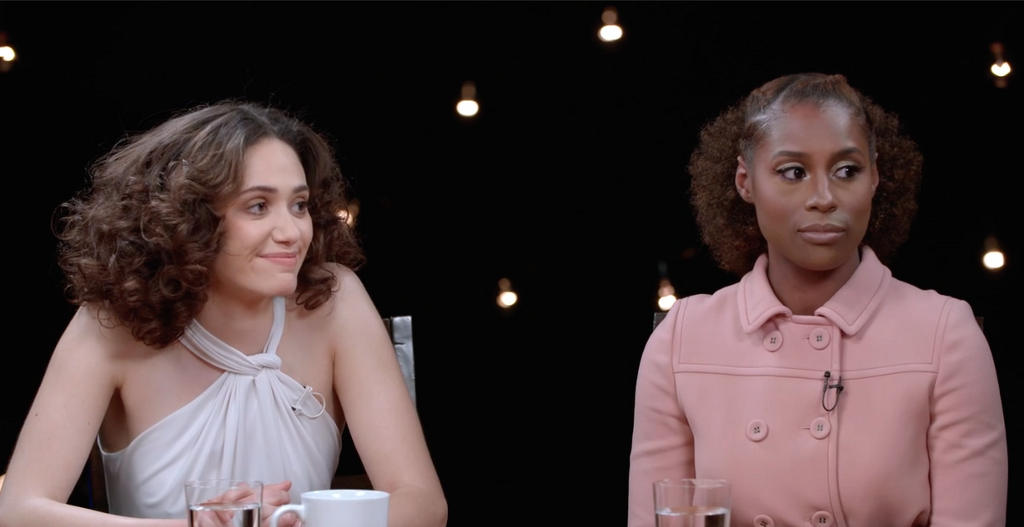
Hahn: “Let’s get your balls out, boys. (Laughs.)”
Rae: “Let’s see some dicks. No, I’ve found that a lot of the guys who we’ve worked with have just been all in, like balls to the wall. (Laughter.) … They’ve been really great about, and generous with, their body parts. I’ve had some of the actors come up and just be like, ‘I think it’s cool that the women aren’t as nude on this show.’”
Rossum: “I think we should be equal opportunity P and D. (Laughter.) But I only really want to see any nudity if there’s a purpose for it. For me, I am OK to be as naked as you want me to be, within reason, if it applies to the story. If it serves the character.”
Rae: “Because I have seen gratuitous breasts and vagina, and it’s just like, why?”
On Hollywood’s habit of forcing actresses into “certain lanes”:
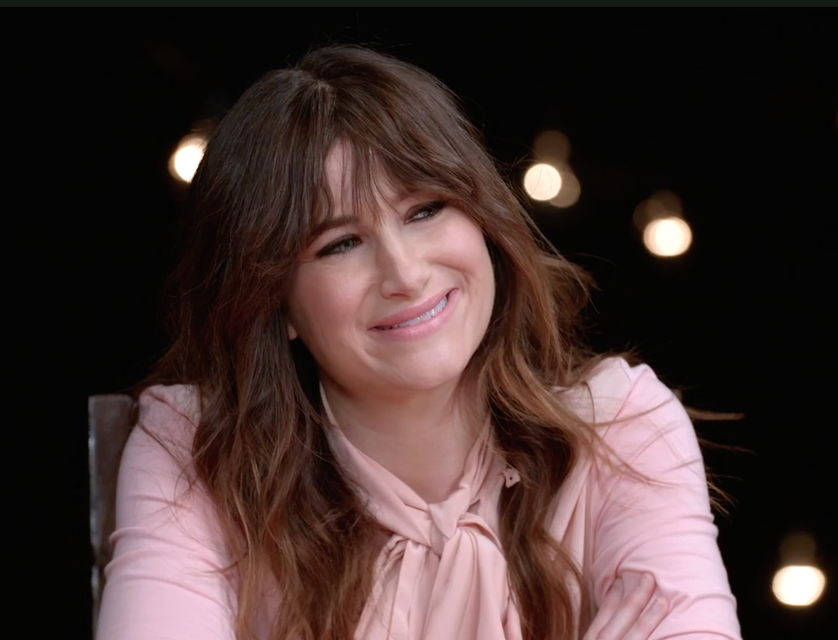
Hahn: “There was certainly a best-friend chapter of my life. I was constantly the quirky best friend to various blonde stars … Judy Greer and I both had been playing best friends at the same, always neck and neck for the same best-friend parts, and my husband was like, ‘You guys should do, like, a ‘Rosencrantz and Guildenstern’-type movie where it’s the best friends, and every so often you see Kate Hudson running around [in the background].’”
Driver: “I hate saying that we’re created out of some sort of patriarchal idea, but we sort of are. You’re not given that many iterations of what it is to be a woman in film and TV. Or we certainly haven’t been up until now, now being the golden age of television where you can do whatever you want. You can write whatever you want, you can direct it how you want, and you can embody it.”
On facing the gender pay gap in Hollywood:
Adlon: “Suzanne Somers went through this with ‘Three’s Company,’ and they got rid of her. She was a huge star on that show. And I know everybody thinks it’s fluffy, stupid ’80s, but she was on the cover of every magazine. She was massive. She’s a fascinating woman. They made a documentary about this. And basically, she asked for equal pay, and they not only said no, they said, ‘You’re fired.’”
Driver: “Oh, my God.”
Adlon: “They escorted her out, not to see anybody, and that was it.”
Driver: “OK, so let me ask you this: What do we do? Do we do the Steinbeck thing where you all go, ‘Well, I’m not going to work for that,’ and they go, ‘Well, there are 20 other women who will.’ Do you take a stand and go, ‘I’m not taking that role because there is no parity, it’s insane’? What do you do?”
Rossum: “It’s not just Hollywood. You look at the people in the medical industry. People in government … But my thing [Rossum’s fight for equal pay on ‘Shameless’] was just, ‘I need to do something to make it right for me, so that I can feel good about doing this job.’ And then it became such a big thing, I was at a health food store in Canada, and this little girl who worked there came up to me and was like, ‘What you did for gender equality really meant so much to me.’ And just the fact that I touched a real person meant something to me.”
Driver: “So, are we supposed to say no? What do you think?”
Ferrera: “I don’t know that that’s the solution. Each of us, we find ourselves in different places with different platforms and kinds of access, and we have to get it right with ourselves, the way you did, Emmy — saying ‘This used to feel OK to me; it doesn’t now,’ and coming to terms with that. And then having the conversation with the entire system built around you to keep you from asking for more. I feel like most of the times that I have had to ask for something, I had to convince my agents to ask with me. Having to ask your agents, ‘I want this thing,’ and having them say, ‘We don’t think you should ask for that.’”
Driver: “But what if you’re looking at what the men are getting paid in a movie, for example, and they’re getting paid not just twice, but maybe four or five times [as much], and it’s a three-hander piece and a woman is getting paid so significantly less, but the part is great and it’s the same screen time, and you’ve got a mortgage to pay and you want to be a good actor and you want opportunities? What are you supposed to do?”
Ferrera: “It’s different for everyone is the thing. Even though we can get inspiration from one another and feel like when any of us wins, we all win, we can’t shame each other because we all have different situations.”
Check out the entire roundtable, including video footage, over at THR.
